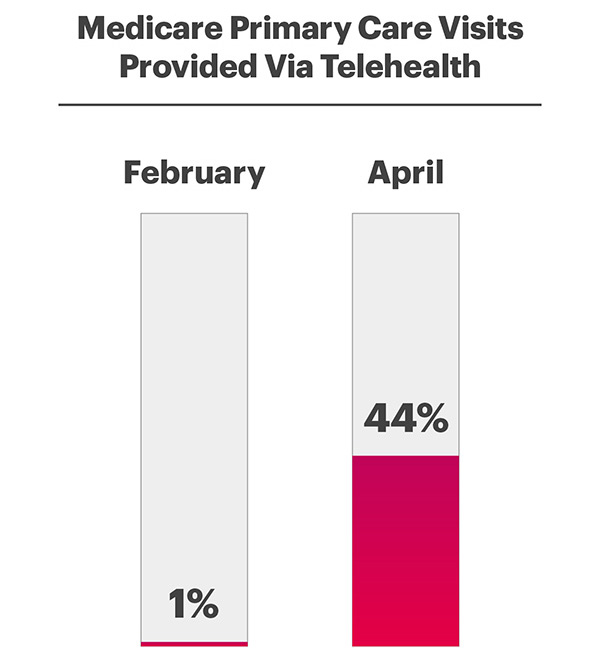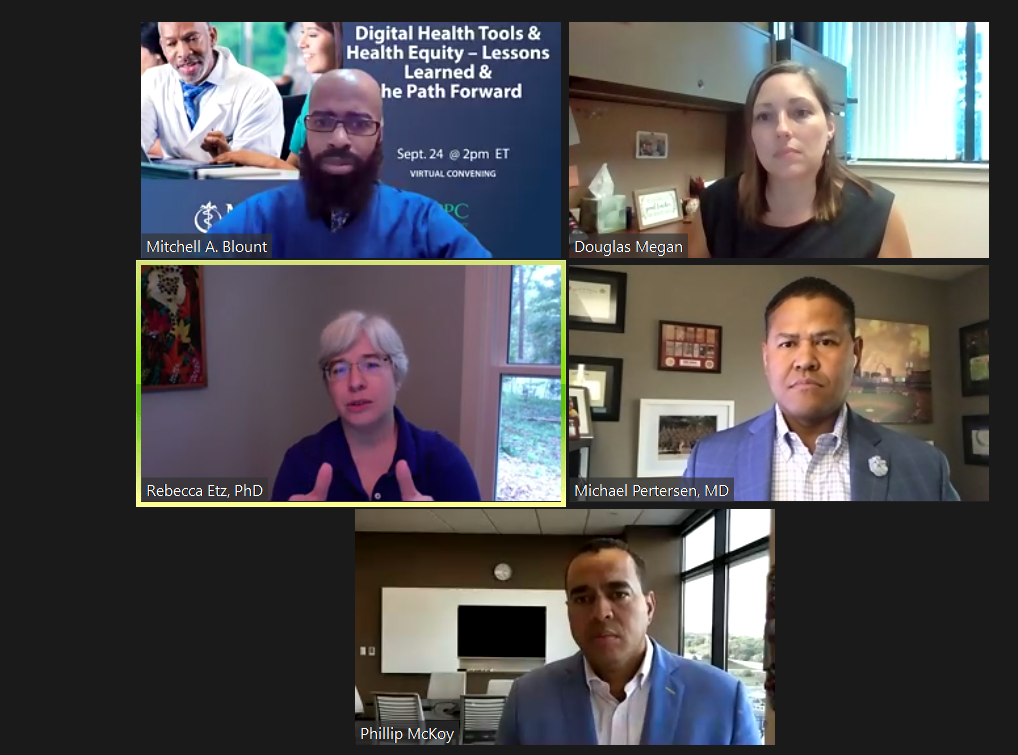
Digital health tools will be critical to advancing health equity and improving access to health care providers in underserved communities, especially in the wake of COVID-19, according to Optum Digital Transformation Leader Phil McKoy.
During a virtual discussion in September — hosted by the Morehouse School of Medicine’s National Center for Primary Care, focused on advancing health equity in the post-COVID era —McKoy said that while the pandemic led to an initial spike in the use of telehealth, it also revealed gaps in the health care system. Data from the Department of Health and Human Services shows that nearly 44% of Medicare primary care visits in April were provided via telehealth compared with less than 1% in February.
“While we had been doing a lot to advance health equity prior to the pandemic, the pandemic really showed us that we must do more,” McKoy said.
In particular, he noted that COVID-19 has hit Black, Hispanic and low-income communities especially hard. According to data from the Centers for Disease Control and Prevention, COVID-19 death rates through early August for Black and Hispanic people were 2.1 times higher and 1.1 times higher than white people, respectively, while hospitalization rates were more than 4.5 times higher for Black and Hispanic people than white people.

McKoy said that after COVID-19 hit, UnitedHealth Group accelerated adoption of telehealth for communities at risk by supporting access to the internet and offered on-site logistical telehealth implementation support to key primary care and behavioral health providers.
“Our advancements in telehealth also became indispensable during COVID,” he said. “The work that we did expanding telehealth technology to address the challenge of diabetes and obesity has informed our later efforts.”
Partnership with the Morehouse School of Medicine

For more than two decades, UnitedHealth Group has focused on identifying, addressing and monitoring health disparities, diversifying the health care workforce and collaborating with community organizations and national partners dedicated to health and wellness for all, McKoy said.
One particular effort he highlighted — a three-year, $1.1 million grant awarded by the United Health Foundation last fall to Morehouse School of Medicine — is examining how to improve access to digital tools for underserved and rural communities. The goal of the initiative is to understand how provider access to and use of health information technology affects health disparities across four Southeastern states: Georgia, Kentucky, North Carolina and Tennessee.
Specifically, the program is focused on the use of digital tools related to the management of diabetes, maternal mortality and transitional case management, including preventable readmissions. Researchers are assessing why and how primary care clinicians are using various digital health solutions in practice and any associated barriers, as well as working to understand the associations between use of those solutions, health outcomes and system and policy-level factors such as reimbursement or state laws.
“Digital penetration among African American communities is really high, so when we serve that community well with our digital offerings, it gives us a unique opportunity to impact those communities in a way that traditional approaches haven’t been able to,” McKoy said.
Ultimately, the researchers will develop evidence-based interventions and an action plan that addresses barriers to the use of digital health technology in underserved communities, with a broader goal of improved outcomes, a better patient experience and lower health care costs.
The Road Ahead
Going forward, UnitedHealth Group will continue to incorporate data from all communities to inform guidelines, training materials, processes and tools that drive the use of advanced analytics and emerging technology to better address health inequities, McKoy said.
“We’re going to continue to focus on people who have been underrepresented or underserved in medical research, including populations of color, pregnant women and children,” he said. “We’ll continue partnerships like the one with Morehouse School of Medicine to improve access to digital tools for underserved communities.”
“We’re going to take what we’re learning fighting COVID-19 and carry it forward to deliver more targeted, personal care for everyone we serve,” he added.

Share This Story